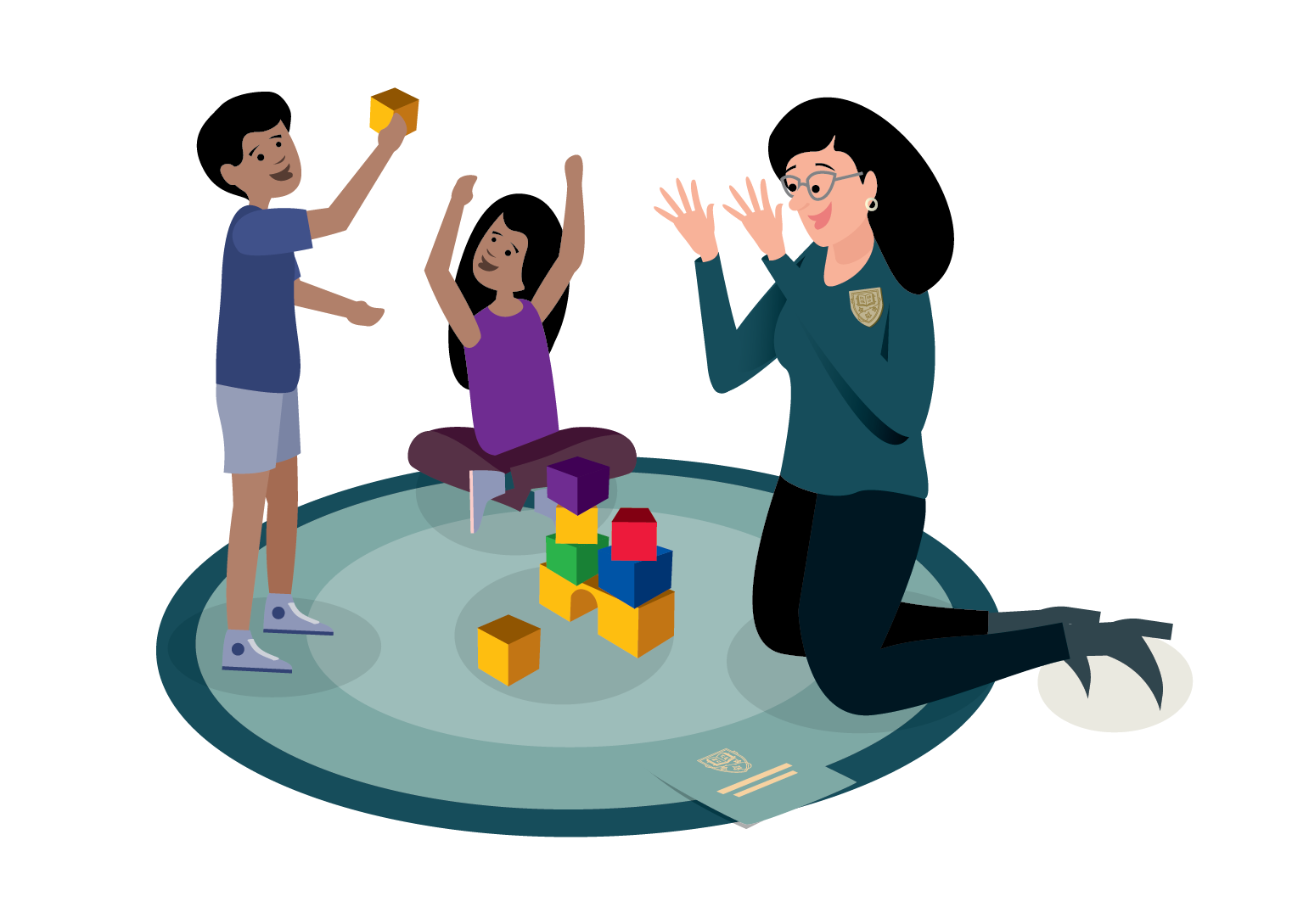Expert Insights
How To Prepare For The 4+ Assessment: Reception Entry
Published 6th September 2024 by Sabine Hook

With many families preparing for 4+ assessments, but with so little information online, it can be hard to find reliable information.
What do 4+ assessments involve? How can you prepare? We liaised with one of our expert primary consultants, Sabine Hook, to go over this and other considerations, with the hope of reducing any anxieties you may have around your child applying for their first school.
Sending your child off to school for the first time is a moment full of pride, but getting to that point might seem a daunting undertaking. You want your child to be happy and fulfilled in their new school, whilst knowing that if they get into an academically strong institution now, it will help them going forward. London is particularly competitive for school places and so you want to take every opportunity to see them gain an edge.
The best way to approach school entrance for your young child is to focus on their general happiness and growth. The rest will take care of itself. Having said that, there are some broad decisions and questions that we can usefully identify for you.
Read on...
The 4+ assessment is an early entrance test used by many independent schools to evaluate young children’s readiness for reception. The structure varies across schools, but generally includes tasks to assess cognitive, verbal, and practical skills. Activities might involve identifying shapes, following instructions, basic problem-solving, and interacting with other children in group settings.
The main goal of the assessment is to observe a child’s social skills, emotional development, and ability to work independently. For example, a school would like to know whether a child is happy being left for an hour without a parent. Schools look for qualities such as sociability, teachability, and adaptability, especially in unfamiliar environments, to determine a child's readiness for formal education.
Ideally, preparation should begin 9-12 months before the assessment. For best results, start around January or February to allow ample time to develop key skills before the actual exam, especially in the run-up to group assessments. If you would like more information on this, our Family Education Team would be more than happy to help you with your queries.

At The Start
First, a child is typically led by the teacher into a separate classroom to conduct the test. You may not think this is part of the test, but the assessment has already begun. If a child is not comfortable with leaving the parent, and cries, or refuses to leave their parent, it is a strong indication that the child will not pass.
During the Assessment
After the child is taken into the room with the other students, laid out like a typical classroom, the assessment formally begins. The children are encouraged to interact with the others, and are given puzzles, books, toys, and games to play with. The assessor will go around the classroom and test children on different abilities.
Often, there is a group reading exercise, fine and gross motor-skill exercises (such as standing on one leg or doing stretches, touching toes, etc.), writing and drawing exercises, and puzzles.
After the Assessment
When the assessment is over and the children are reunited with their mummies and daddies, parents will find out whether their child passes the test within a few weeks of the assessment taking place.
You might therefore be wondering how to prepare your child for a 4+ assessment best. As it is a holistic assessment of your child, the simple answer is to do all the usual things a parent does to help their child develop and thrive. It might be a good idea to reference the list above and use it as a check-list to ensure you are covering all of the basics.
Talk with your child, play with them, reading them stories, encourage them to count things around them. Getting your child into a good nursery will also help with the transition to Reception. Our blog, choosing between nurseries, provides a helpful overview of the steps to consider when choosing a good nursery. If the nursery sees your child as someone who will thrive in a certain school, they can often recommend your child to schools even if the 4+ assessment doesn’t go so well.
Once preparations for these assessments have taken place, it is vital to remember not to place too much emphasis on a school’s decision at this stage. The 4+ is a one-hour assessment of a toddler in what for them will be a strange environment. There is no rush for your child to get into the perfect school and a 4+ assessment is not going to be an indicator of a child’s ultimate potential.
Encouraging role-play or mock assessments at home can help familiarise them with the assessment structure, reducing any feelings of uncertainty. Engage them in simple communication exercises, such as listening games, to boost their confidence in following instructions.
It's equally important to gradually ease your child into being away from parents. Practice short separations to help them grow comfortable in new environments without parental presence, fostering emotional independence for the assessment day.
Ivy Education also provides expert consultation to help parents choose the best school for their child. Our education consultants have extensive knowledge of the UK independent school system, including the specific requirements and assessment formats of various schools.
We also offer comprehensive support for families preparing for the 4+ assessments. Whether you are still in the deciding stage, and still considering which schools you are looking to apply to, or you are already on your way to preparing your child, our resources can help you best prepare for this important milestone.
In the Autumn of each year, Ivy Education host 4+ Group Assessments, which will complement the day-to-day interactions you are already having with your child. Led by our Early Years Consultant, Anna, our 4+ Group Assessments are 1-hour long, activity-based sessions that provide experience in assessments associated with schools such as Alleyn’s, Bute House and Dulwich Prep.
The workshops will focus on the key communication and development milestones taken into consideration during the 4+ assessment stage and will be followed up with 1-2-1 verbal feedback and a written report.
While our 4+ Group Assessments typically occur once a year, we offer one-on-one exam-focussed assessments year-round. If you are interested in preparation with an Early Years' Expert, contact us for more information.
If you would like help navigating the 4+ and early years education, contact us today.
Support with the 4+ 7.0 TopThe 4+ assessment is an entrance exam for children applying to independent schools at the age of four. It evaluates their academic potential, social skills, and emotional intelligence through activities like literacy and numeracy tasks, group-based play, and critical thinking games.
Ideally, preparation should begin 9-12 months before the assessment. For best results, start around January or February to allow ample time to develop key skills before the actual exam, especially in the run-up to group assessments.
The 4+ assesses children's abilities in literacy, numeracy, social interaction, critical thinking, and fine motor skills. Specific activities may include collaborative tasks, puzzles, and games that test academic and social skills
The assessment typically includes both individual and group-based activities. Depending on the school, there may be a focus on either academic tasks or play-based learning. For example, schools like DUCKS focus more on social skills, while others, like Alleyn’s, focus more on individual academic potential.
The parent’s role is crucial. Sessions with Early Years Specialists often involve consulting with parents to ensure they understand how to reinforce the required skills at home. Advice may also help parents avoid counterproductive behaviours during practice.
Essential skills to focus on include literacy (phonics and early reading), numeracy, social interaction (collaboration, sharing), and emotional strength (handling separation anxiety, communicating with adults). Some programs also emphasise perseverance and critical thinking.
Ivy Education offers early years advice, and preparation assessments, such as our 4+ individual and group assessments.











